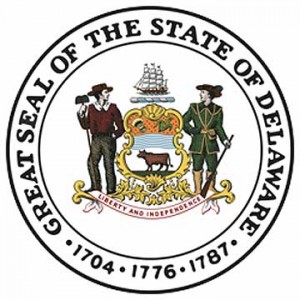NEW CASTLE (April 25, 2019) – The Delaware Department of Health and Social Services (DHSS) today announced that Delaware is one of five states selected to partner with the national nonprofit Shatterproof in the development of a new pilot rating system designed to measure quality in addiction treatment programs. Delaware was selected due to the work the Division of Substance Abuse and Mental Health (DSAMH) has undertaken as part of the Substance Use Treatment and Recovery Transformation Initiative (START), which was launched in October 2018.
Under the START Initiative, DSAMH is currently tracking quality and clinical measures for addiction treatment across the state and then sharing that information with providers to help them improve their services. The partnership with Shatterproof, which was formed in 2012 to end the devastation addiction causes families, will enhance these efforts by providing a common set of measures for providers to benchmark themselves against, not just in Delaware but across the United States. The Shatterproof Rating System will also allow those seeking treatment for themselves or a loved one to see overall ratings via a free, public website increasing the transparency of the entire system.
“We are committed to doing everything we can to improve the quality of care for those suffering from addiction,” said Lt. Governor Bethany Hall-Long, who chairs the Behavioral Health Consortium. “This partnership with Shatterproof is another leap forward for the START Initiative and will help ensure that Delawareans have a quality treatment system that works for them when they need it most.”
“The START Initiative was one of the first steps forward in embracing the recommendations of the Johns Hopkins report to strengthen the treatment system in our state,” said DHSS Secretary Dr. Kara Odom Walker, a board-certified family physician. “Being selected by Shatterproof to participate in this pilot program will further the goal of the START Initiative to offer care that is high-quality, comprehensive, coordinated, evidence-based, and person-centered.”
The Shatterproof Rating System will be piloted in select states over two years. The three other participating states that have been announced are Louisiana, Massachusetts and New York. The pilot will apply public rating system best practices to the addiction treatment field by measuring the evidence-based elements of care delivery shown to improve patient outcomes. This information will be gathered from three sources: insurance claims, provider surveys, and consumer experience. The roughly $5 million pilot is funded by a coalition of Shatterproof’s stakeholders and none of the treatment programs in the rating system, or pilot states, will pay any cost or provide funding.
“This pilot dovetails perfectly with the work that we are engaged in and is only going to amplify our efforts,” said DSAMH Director Elizabeth Romero. “Our providers have been and will continue to be essential partners in this effort to improve Delaware’s treatment system.”
Providers were briefed on the Shatterproof Rating System and the pilot program at a meeting in April. The rating system will give treatment programs the opportunity to benchmark themselves against their peers throughout the state, target their quality improvement efforts, and offer transparency to patients seeking treatment.
Upon successful completion of the two-year pilot, the system will continue in the pilot states and a nationwide rollout will eventually establish the Shatterproof Rating System as the national standard for measuring the quality of behavioral health treatment.
“Addiction is a chronic, relapsing disease that can be treated with the same effectiveness as other illnesses when using evidence-based best practices,” said Gary Mendell, Founder and CEO of Shatterproof. “Tragically, though, the quality of care varies widely among addiction treatment programs, and it’s difficult for individuals looking for care to identify high-quality programs. It is time that a standard be set across all addiction treatment, and that the entire system aligns behind evidence-based care.”
If you or a loved one is struggling with addiction in Delaware, call DHSS’ 24/7 Crisis Hotline to be connected to treatment and recovery options. In New Castle County, call 1-800-652-2929. Or in Kent and Sussex counties, call 1-800-345-6785. To search online for treatment and recovery services in Delaware or nearby states, visit www.HelpIsHereDE.com.
-30-
The Department of Health and Social Services is committed to improving the quality of life of Delaware’s citizens by promoting health and well-being, fostering self-sufficiency, and protecting vulnerable populations.

